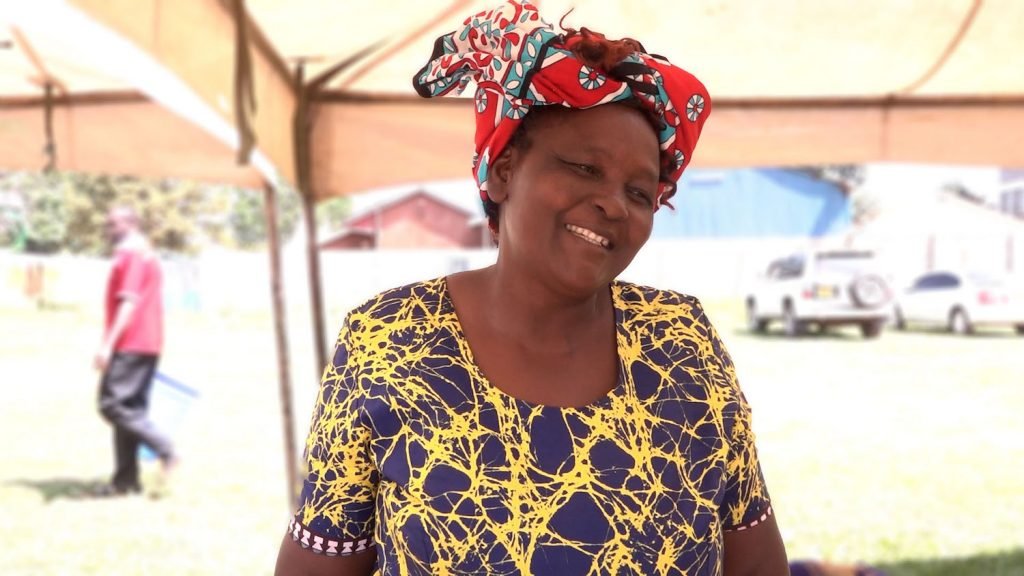By Pamela Okutoyi
Women group finds a baking fortune in the orange-fleshed sweet potato
In Kenya, the traditional crop is widely regarded as a naturally nutritious food and a healthier dietary choice because it is grown without chemicals. It is also an inexpensive crop because it does not need much labour or fertiliser and can be grown anywhere in the country.
The consumption of this crop has increased in both local and five-star hotels. It’s considered relatively cheap for households and serves as a good substitute for bread and cakes. As the demand for sweet potatoes increases countrywide, more families and hotels are coming up with more creative recipes other than boiling the tubers.
Entrepreneurs are now venturing into sweet potato processing. Tambelela Women’s Group in Bungoma County is running one such enterprise. Beatrice Wamalwa, the chairlady of the group, says that processing the orange-fleshed potatoes into bakery products such as cakes, bread, chapatis and mandazi (buns) has been a game-changer for them.
The group started off as a merrygo-round, an informal self-help group popularly known as chama in Kenya, which pools money and gives to members on a revolving basis. “Last year, when the rains did not come as expected and we were struggling with losses in our maize farms, we met German Agency for International Cooperation (GIZ).
GIZ trained us on planting the orange-fleshed potatoes. To buy the vines, the trainers directed us to Kenya Agriculture and Livestock Research Organization (KALRO) Kakamega. As a group, we contributed Sh17,000 and used it to buy 17 bags of potato vines. After planting, GIZ came again and trained us on value addition.
We eat cake, bread, chapati and mandazi made from potato flour,” Beatrice says. There are over 500 species of sweet potatoes. The most common in Kenya has been the white and yellow types.
The Kenya Plant Health Inspectorate Service (KEPHIS) has recently approved new varieties among them, Kabonde, the orangefleshed sweet potatoes that Beatrice and her group members have found a fortune in. Kabonde matures within four to six months with a maximum potential yield of 8 tons per acre.
“Previously, I depended on maize to support my family since my husband’s retirement. Maize did not give good yields and the recent climatic changes have made maize planting unsuitable.
But since we were introduced to the orange-fleshed sweet potato, I have little to worry about. The returns from the farm can sustain my family and me adequately,” says Beatrice, a mother of six. She says processing the sweet potatoes into bakery products involves several steps, including cleaning, drying and milling.
“The first thing we do is clean the sweet potatoes. We do not peel them. We then cut into small pieces and dry them in the sun for a week. Once they are dried, we take them to the miller to process into flour. For the flour to be used for baking, it is mixed with a small portion of wheat flour,” says Beatrice.
The cakes, chapatis and mandazi are sold to schools, hotels and neighbours. The group of 32 women, in addition to selling the potato vines and value-added potato products, is training young farmers in Sirisia on value addition.
Through their partnership with Kenya Climate Innovation Centre (KCIC) under the AgriBiz program,
the group is working on a plan to start a company and purchase machinery to expand its business. “Joining the AgriBiz program for us is a dream come true.
So far, we have been provided with facilities such as office space at the Bungoma Incubation Hub and warehouses for training and knowledge exchange. In addition, the AgriBiz program has enabled us to attend a series of exhibitions where we have created market linkages and networks to sell our products,” Beatrice says.
“Kenyans of all classes now consume sweet potatoes. A processing company is ideal to honour this ancient crop.” The European Union, the Ministry of Foreign Affairs of Denmark (Danida) and KCIC launched the AgriBiz Program to stimulate the growth of women and youth-owned enterprises in the agribusiness sector. The five-year programme is being implemented jointly within eight county governments – Machakos, Kisii, Uasin Gishu, Isiolo, Bungoma, Kiambu, Meru and Kilifi.
The AgriBiz program addresses key challenges that hinder youth and women from tapping into the immense potential in the agricultural sector.
Pamela Okutoyi is a Communication and Sustainability Professional, Development Communication at Kenya Climate Innovation Center Consulting

